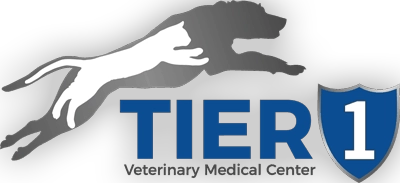Diaphragmatic Hernia Repair
Understanding Diaphragmatic Hernia Repair and the Role of Board-Certified Surgeons
As a pet owner, learning that your pet needs surgery can be overwhelming, especially if it involves a complex procedure like diaphragmatic hernia repair. This article aims to explain what diaphragmatic hernia is, why having a board-certified surgeon is beneficial, and what recovery looks like. Additionally, we'll discuss the challenges faced in areas with limited access to specialized care.
What is a Diaphragmatic Hernia?
A diaphragmatic hernia occurs when there is an abnormal opening in the diaphragm, allowing abdominal organs like the stomach, intestines, or liver to move into the chest cavity. This can put pressure on the lungs and heart, leading to serious complications. Hernias can be congenital (present at birth) or traumatic, often resulting from injuries such as vehicular accidents.
Diaphragmatic Hernia Repair Surgery
The surgery involves making an incision into your pet's abdomen to move displaced organs back into their proper position and repair the hole in the diaphragm. This procedure is typically performed under general anesthesia and requires careful postoperative care to prevent complications.
Benefits of Board-Certified Surgeons
Board-certified surgeons have completed additional specialized training and passed rigorous exams, ensuring they have the expertise to handle complex surgeries like diaphragmatic hernia repair. Their advanced training can lead to better outcomes and fewer complications. However, in areas with limited access to specialized care, general practitioners may be called upon to perform these surgeries.
Challenges in Areas with Limited Access
In many rural or underserved areas, there is a shortage of specialized veterinary surgeons. This can lead to situations where general practitioners, who may not have the same level of specialized training, are asked to perform complex surgeries. While they do their best, the lack of specialized expertise can increase the risk of complications.
Recovery from Diaphragmatic Hernia Repair
Recovery typically takes 10 to 14 days. It's crucial to limit your pet's activity, keep them indoors, and avoid strenuous activities like running or jumping. Pets should be supervised at all times to prevent accidents, and regular follow-up visits with your veterinarian are essential to monitor healing and address any concerns.
Conclusion
While having a board-certified surgeon perform diaphragmatic hernia repair is ideal, it's not always possible due to geographical constraints. Understanding the procedure and recovery process can help you support your pet's health. If you live in an area with limited access to specialized care, discussing your options with your veterinarian and exploring nearby specialized centers can be beneficial.
Actionable Tips for Pet Owners
- Seek a Second Opinion: If possible, consult with a board-certified surgeon for a second opinion.
- Follow Postoperative Care Instructions: Adhere strictly to your veterinarian's advice on recovery care.
- Stay Informed: Educate yourself about the procedure and potential complications to better support your pet.
By being proactive and informed, you can ensure your pet receives the best possible care, even in challenging circumstances.
What are the main symptoms of a diaphragmatic hernia in pets?
The main symptoms of a diaphragmatic hernia in pets, particularly dogs and cats, can vary depending on the severity and type of hernia. Here are some common signs:
- Respiratory Distress: Dyspnea (difficulty breathing) is a common symptom, often accompanied by tachypnea (rapid breathing) and signs of severe respiratory distress, such as cyanosis (blue-tinged mucous membranes).
- Abdominal Pain: Pets may exhibit signs of abdominal discomfort or pain, which can be more pronounced in acute cases.
- Gastrointestinal Symptoms: Vomiting, diarrhea, and mild gastrointestinal upset can occur, especially if abdominal organs are herniated into the chest cavity.
- Cardiac Symptoms: Abnormal heart rhythms, muffled heart sounds, and decreased lung sounds may be observed due to the pressure on the heart and lungs.
- Systemic Signs: In severe cases, pets may show signs of systemic shock, such as hypotension (low blood pressure) and arrhythmia.
In chronic or congenital cases, symptoms may be mild or absent, making diagnosis more challenging.
Additional Symptoms in Specific Cases
- Delayed Traumatic Hernias: These may present with cough, delayed onset of symptoms, and less severe initial signs.
- Peritoneopericardial Diaphragmatic Hernia (PPDH): Symptoms can include exercise intolerance, cough, vomiting, and anorexia.
Early diagnosis and surgical intervention are crucial for effective treatment and recovery.
What are the risks associated with delaying treatment for a diaphragmatic hernia?
Delaying treatment for a diaphragmatic hernia in pets can lead to several risks and complications. Here are some of the key concerns:
Risks of Delaying Treatment
- Cardiopulmonary Decompensation: Delaying surgery can increase the likelihood of cardiopulmonary decompensation and death. This is because the herniated organs can compress the lungs and heart, leading to severe respiratory distress and cardiac issues.
- Increased Mortality: The timing of surgical intervention is a significant risk factor for mortality. Delaying surgery beyond a few hours can worsen outcomes, especially if the animal does not stabilize with supportive care.
- Organ Strangulation: If abdominal organs become trapped in the hernia, they can lose blood supply, leading to tissue necrosis and potentially life-threatening complications.
- Respiratory Failure: The longer the delay, the higher the risk of respiratory failure due to prolonged compression of the lungs by herniated organs.
- Systemic Complications: Delayed treatment can lead to systemic complications such as shock, arrhythmias, and hypotension due to the increased pressure on vital organs.
Conclusion
Prompt surgical intervention is generally recommended for diaphragmatic hernias, especially in acute cases with severe symptoms. While stabilization before surgery is important, delaying treatment beyond necessary can significantly increase the risk of complications and mortality.
Actionable Tips for Pet Owners
- Seek Immediate Veterinary Attention: If you suspect a diaphragmatic hernia, especially after trauma, seek veterinary care promptly.
- Follow Veterinary Advice: Adhere to your veterinarian's recommendations regarding timing and preparation for surgery.
- Monitor for Signs of Distress: Keep a close eye on your pet for signs of respiratory distress, pain, or other complications that may indicate the need for urgent intervention.
